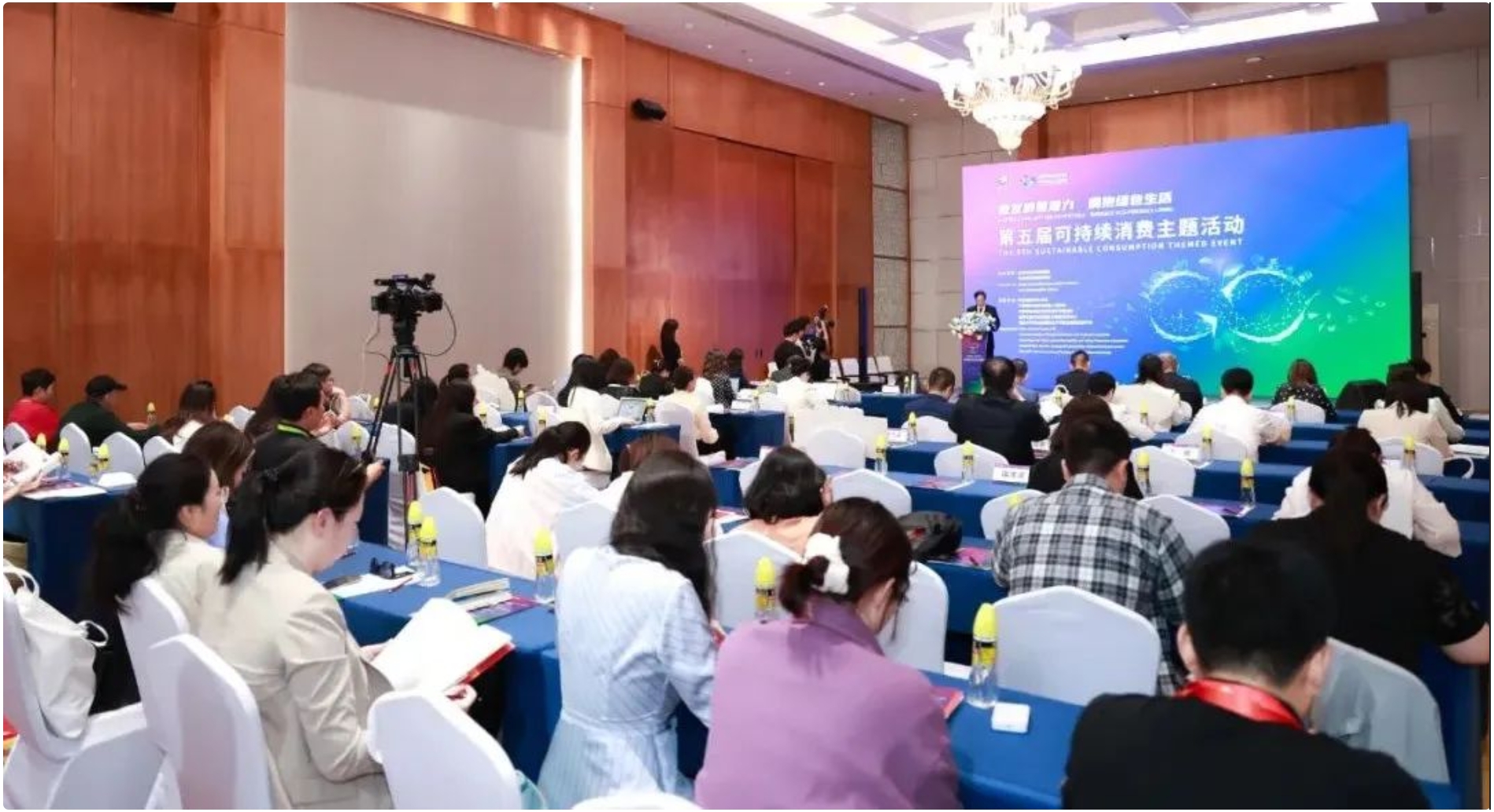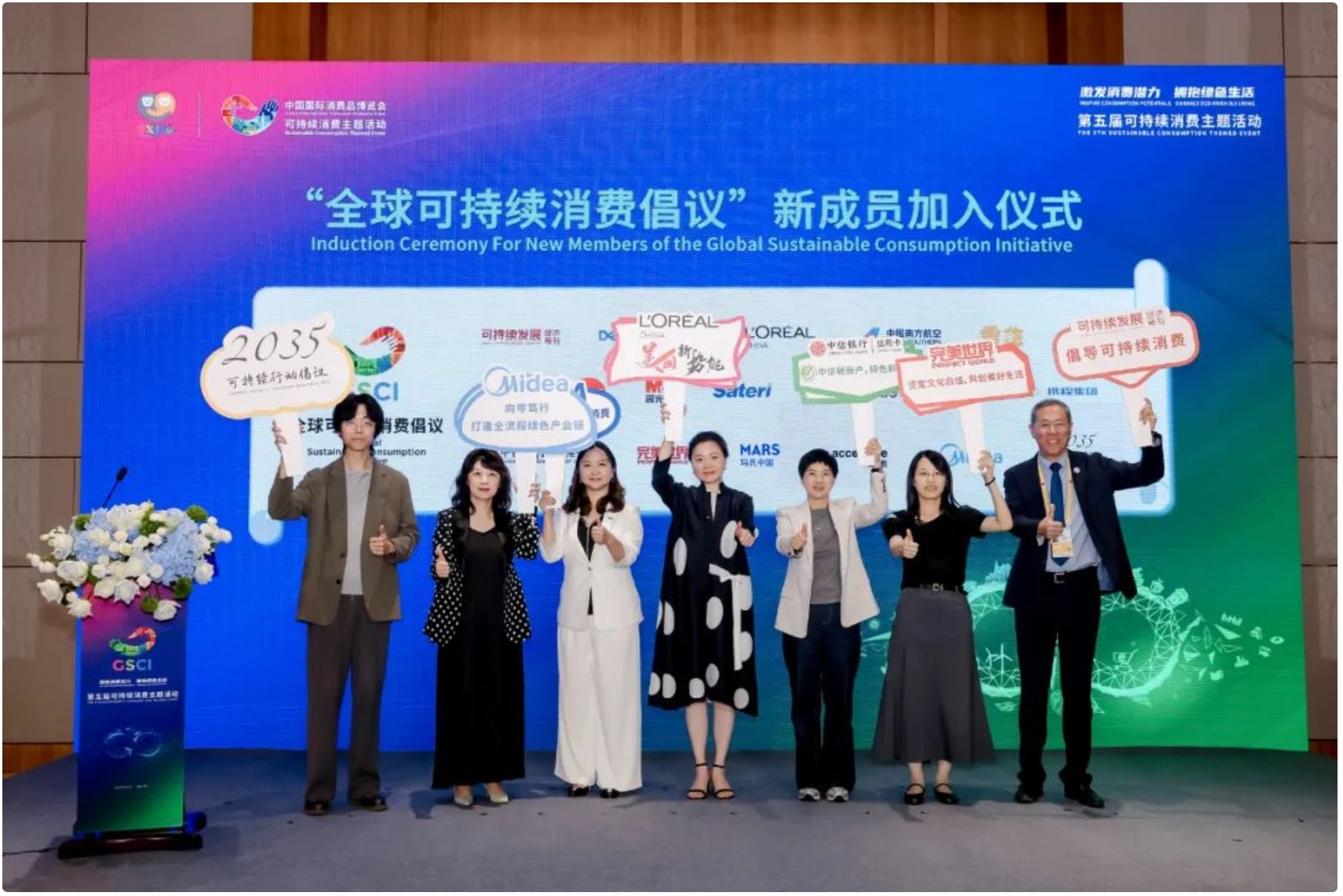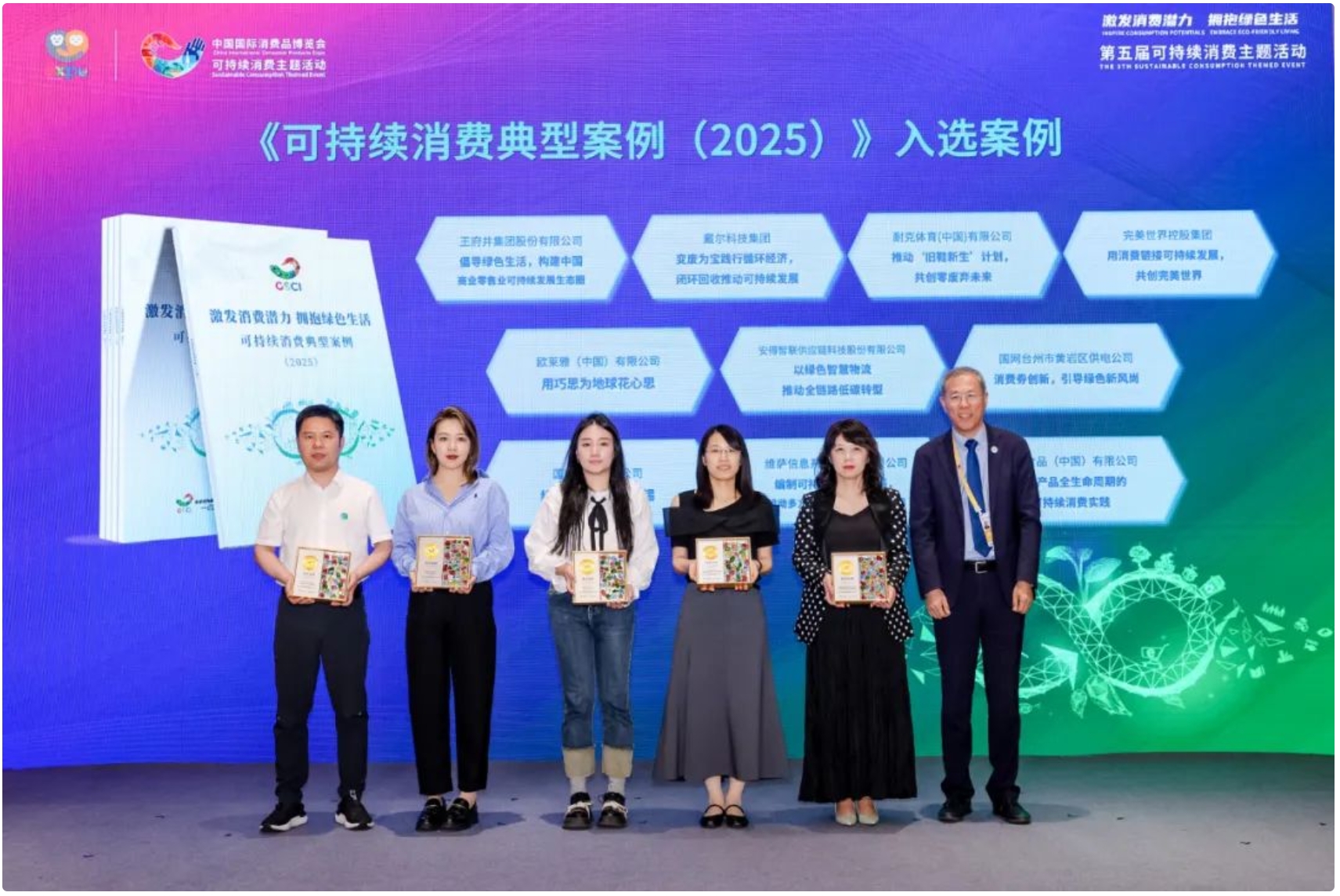
The 5th Sustainable Consumption Themed Event was held at the China International Consumer Products Expo (CICPE) on April 15 in Haikou, Hainan.
Under the theme "Inspire Consumption Potentials, Embrace Eco-friendly Living," the event was hosted by the Global Sustainable Consumption Initiative and the China Sustainability Tribune. It attracted over 300 representatives from governments, enterprises, academia, and institutions, solidifying its role as a core platform for green transformation at the expo.
At the opening ceremony, Wang Jianguo, Deputy Party Secretary of the Hainan Provincial Bureau of International Economic Development, highlighted that "green consumption has become a pivotal intersection for driving economic recovery and achieving China’s goals of carbon peaking and carbon neutrality."
Mao Zhenbin, President of the China Food and Drug Corporation Quality and Safety Promotion Association, emphasized that "the food and pharmaceutical industries must pursue green transformation to address climate change," calling for multi-stakeholder collaboration to build a sustainable industrial ecosystem.
During the event, the Global Sustainable Consumption Initiative welcomed two new members, Midea Group, and the "Dairy Industry Sustainable Action Initiative 2035 " consortium, increasing the total number to 19.

Besides, key outcomes were unveiled, including:
The Institute of Carbon Neutrality at Peking University released the group standard, Technical Specification for Low-Carbon Evaluation of Dairy Enterprises,filling a gap in the industry.
Visa and China Sustainability Tribune jointly published the White Paper on Sustainable Tourism Insights and Practices, showcasing transformation cases across six sectors.
The 2025 Sustainable Consumption Cases Collection was launched, featuring green innovation practices across the entire industrial chain.

A roundtable discussion saw representatives from Midea, Mengniu Dairy, and China CITIC Bank sharing green initiatives, covering innovations like smart logistics, carbon accounts, and eco-friendly packaging.
The participants unanimously agreed that sustainable consumption is not only a corporate social responsibility but also an inevitable choice for market transformation.




 Back
to top
Back
to top